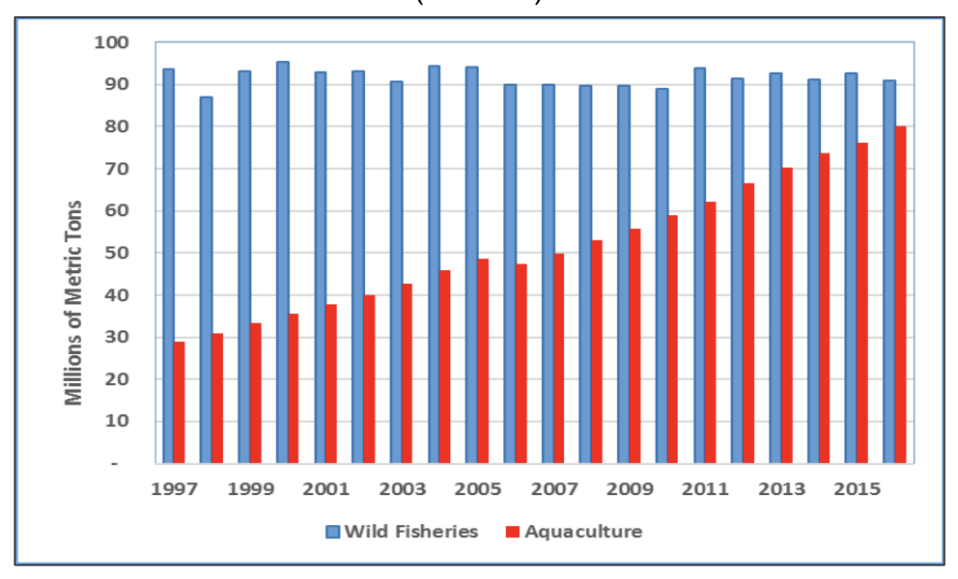Courtesy of NAA:
The Congressional Research Service (CRS), a legislative branch agency within the Library of Congress provides policy and legal analysis to the House and Senate, has published a report entitled, US Offshore Aquaculture Regulation and Development. In part the report found:
- Regulatory uncertainty has been identified as one of the main barriers to offshore aquaculture development in the United States.
- Establishing an offshore aquaculture operation is contingent on obtaining several federal permits and fulfilling a number of additional consultation and review requirements from different federal agencies responsible for various general authorities that apply to aquaculture.
- There is no explicit statutory authority for permitting/leasing and developing aquaculture in federal waters. The aquaculture permit and consultation process in federal waters has been described as complex, time consuming, and difficult to navigate.
- Supporters of aquaculture have asserted that development of the industry, especially in offshore areas, has significant potential to increase U.S. seafood production and provide economic opportunities for coastal communities.
- Environmental organizations and fishermen generally have opposed development of offshore aquaculture. Those who oppose aquaculture development generally advocate for new authorities to regulate offshore aquaculture and to safeguard the environment and other uses of offshore waters.
- Proponents of aquaculture counter that in many parts of the world a combination of farming experiences, technological advances, proper siting, and industry regulation has decreased environmental impacts and improved efficiency of marine aquaculture. They argue that many who oppose marine aquaculture lack an understanding of the benefits and risks of aquaculture and that opposition persists despite research that contradicts the extent or existence of these risks.
- Comprehensive offshore aquaculture bills were introduced in the 109th, 110th, 111th, 112th, and 115th Congresses, but none were enacted. In the 115th Congress, the Advancing the Quality and Understanding of American Aquaculture Act (AQUAA; S. 3138 and H.R. 6966) was introduced; AQUAA would have established a regulatory framework for aquaculture development in federal waters.
- Since the 109th Congress, bills have been introduced that would constrain or prohibit the permitting of aquaculture in the EEZ. The Keep Finfish Free Act of 2019 (H.R. 2467), introduced in the 116th Congress, would prohibit the issuance of permits to conduct finfish aquaculture in the EEZ until a law is enacted that allows such action.
- It remains an open question whether legislation could be crafted that would provide the regulatory framework desired by potential commercial developers of offshore aquaculture and avoid or minimize risks of environmental harm to the satisfaction of those currently opposed to offshore aquaculture development.
Click here to read or download the report.



Recent Comments